R. A. Salvatore - Hunters Blade 3 - The Two Swords
VIP免费
2024-12-02
1
0
574.04KB
180 页
5.9玖币
侵权投诉
The Two Swords
Book 3 of The Hunter’s Blades Trilogy
A Forgotten Realms novel
by R. A. Salvatore
Scanned by ripXrip
Pre-proofed by BW-SciFi
Ebook version 0.9
Note: I release this ebook in preproofed state to prevent duplication of effor by other
scanners. This ebook is fully preproofed, ie. checked for errors, visually scanned for uncertain
words. As such, it’s quite readable. I think some formatting and minor ocr errors are still
present but they should be really minor. I’ll proofread this ebook later when I read all
previous Drizzt’s novels.
The Hunter's Blades Trilogy, Book III
THE TWO SWORDS
©2004 Wizards of the Coast, Inc.
All characters in this book are fictitious. Any resemblance to actual persons, living or dead, is purely coincidental.
This book is protected under the copyright laws of the United States of America. Any reproduction or
unauthorized use of the material or artwork contained herein is prohibited without the express written permission
of Wizards of the Coast, Inc.
Distributed in the United States by Holtzbrinck Publishing.
Distributed in Canada by Fenn Ltd.
Distributed to the hobby, toy, and comic trade in the United States and Canada by regional distributors.
Distributed worldwide by Wizards of the Coast, Inc. and regional distributors.
Forgotten Realms, Wizards of the Coast and their respective logos are trademarks of Wizards of the Coast, Inc. in
the U.S.A. and other countries.
All Wizards of the Coast characters, character names, and the distinctive likenesses thereof are trademarks owned
by Wizards of the Coast, Inc.
Printed in the U.S.A.
Cover art by Todd Lockwood
First Printing: October 2004
Library of Congress Catalog Card Number: 2004106768
987654321
US ISBN: 0-7869-3360-7
UK ISBN: 0-7869-3361-5
620-17759-001-EN
U.S., CANADA, EUROPEAN HEADQUARTERS
ASIA, PACIFIC, & LATIN AMERICA Wizards of the Coast, Belgium
Wizards of the Coast, Inc. T Hofveld 6d
P.O. Box 707 1702 Groot-Bijgaarden
Renton, WA 98057-0707 Belgium
+1-800-324-6496 +322 467 3360
Visit our web site at www.wizards.com/forgottenrealms
Prelude
The torchlight seemed such a meager thing against the unrelenting darkness of the
dwarven caves. The smoky air drifted around Delly Curtie, irritating her eyes and throat,
much as the continual grumbling and complaining of the other humans in the large common
room irritated her sensibilities. Steward Regis had graciously given over a considerable suite
of rooms to those seemingly ungrateful people, refugees all from the many settlements sacked
by brutish King Obould and his orcs in their southern trek.
Delly reminded herself not to be too judgmental of the folk. All of them had suffered
grievous losses, with many being the only remaining member of a murdered family, with
three being the only remaining citizens of an entirely sacked community! And the conditions,
as decent as Regis and Bruenor tried to make them, were not fitting for a human.
That thought struck hard at Delly's sensibilities, and she glanced back over her shoulder at
her toddler, Colson, asleep—finally!—in a small crib. Cottie Cooperson, a spindly-armed
woman with thin straw hair and eyes that drooped under the weight of a great loss, sat beside
the sleeping toddler, her arms crossed tightly over her chest as she rocked back and forth,
back and forth.
Remembering her own murdered baby, Delly knew.
That horrific thought sobered Delly, to be sure. Colson wasn't really Delly's child, not by
birth. But she had adopted the baby girl, as Wulfgar had adopted Colson and in turn had taken
on Delly as his traveling companion and wife. Delly had followed him to Mithral Hall
willingly, eagerly even, and had thought herself a good and generous person in granting him
his adventurous spirit, in standing beside him through what he had needed without regard for
her own desires.
Delly's smile was more sad than joyous. It was perhaps the first time the young woman
had ever thought of herself as good and generous.
But the dwarven walls were closing in on her.
Never had Delly Curtie imagined that she could harbor wistful memories of her street life
in Luskan, living wild and on the edge, half-drunk most of the time and in the arms of a
different man night after night. She thought of clever Morik, a wonderful lover, and of Arumn
Gardpeck, the tavern-keeper who had been as a father to her. She thought of Josi Puddles,
too, and found in those recollections of his undeniably stupid grin some measure of comfort.
"Nah, ye're being silly," the woman muttered under her breath.
She shook her head to throw those memories aside. This was her life now, with Wulfgar
and the others. The dwarves of Clan Battlehammer were goodly folk, she told herself. Often
eccentric, always kind and many times simply and playfully absurd, they were a lovable lot
beneath their typically gruff exteriors. Some wore outrageous clothing or armor, others
carried strange and ridiculous names, and most wild and absurd beards, but the clan showed
Delly a measure of heart that she had never before seen, other than from Arumn perhaps.
They treated her as kin, or tried to, for the differences remained.
Undeniably so.
Differences of preference, human to dwarf, like the stifling air of the caves—air that
would grow even more stagnant, no doubt, since both exterior doors of Mithral Hall had been
closed and barricaded.
"Ah, but to feel the wind and sun on my face once more!" a woman from across the
common room shouted, lifting a flagon of mead in toast, as if she had read Delly's every
thought.
From all across the room, mugs came up in response and clanged together. The group,
almost all of them, were well on their way to drunkenness yet again, Delly realized. They had
no place to fit in, and their drinking was as much to alleviate their helpless frustration as to
dull the horrible memories of Obould's march through their respective communities.
Delly checked on Colson again and filtered about the tables. She had agreed to tend to the
group, calling upon her experiences as a serving wench in Luskan. She caught bits of
conversation wherever she passed, and every thought found a hold on her, and bit at what
little contentment remained within her heart.
"I'm going to set up a smithy in Silverymoon," one man proclaimed.
"Bah, Silverymoon!" another argued, sounding very much like a dwarf with his rough
dialect. "Silverymoon's nothing but a bunch of dancing elves.
Get ye to Sundabar. Ye're sure to find a better livelihood in a town of folk who know
proper business."
"Silverymoon's more accepting," a woman from another table argued. "And more
beautiful, by all tellings."
Those were almost the very same words that Delly had once heard to describe Mithral
Hall. In many ways, the Hall had lived up to its reputation. Certainly the reception Bruenor
and his kin had given her had been nothing short of wonderful, in their unique, dwarven way.
And Mithral Hall was as amazing a sight as Luskan's harbor, to be sure. Yet it was a sight that
quickly melted into sameness, Delly had come to know.
She made her way across the room, veering back toward Colson, who was still sleeping
but had begun that same scratchy cough that Delly had been hearing from all the humans in
the smoky tunnels.
"I'm right grateful enough to Steward Regis and King Bruenor," she heard one woman say,
again as if reading her very thoughts, "but here's no place for a person!" The woman lifted her
flagon. "Silverymoon or Sundabar, then!" she toasted, to many cheers. "Or anywhere else ye
might be seeing the sun and the stars!"
"Everlund!" another man cried.
In the stark crib on the cold stone floor beside Delly Curtie, Colson coughed again.
Beside the baby girl, Cottie Cooperson swayed.
PART ONE
ORC AMBITIONS
I look upon the hillside, quiet now except for the birds. That's all there is. The birds,
cawing and cackling and poking their beaks into unseeing eyeballs. Crows do not circle
before they alight on a field strewn with the dead. They fly as the bee to a flower, straight for
their goal, with so great a feast before them. They are the cleaners, along with the crawling
insects, the rain, and the unending wind.
And the passage of time. There is always that. The turn of the day, of the season, of the
year.
When it is done, all that is left are the bones and the stones. The screams are gone, the
smell is gone. The blood is washed away. The fattened birds take with them in their departing
flights all that identified these fallen warriors as individuals.
Leaving the bones and stones, to mingle and mix. As the wind or the rain break apart the
skeletons and filter them together, as the passage of time buries some, what is left becomes
indistinguishable, perhaps, to all but the most careful of observers. Who will remember those
who died here, and what have they gained to compensate for all that they, on both sides, lost?
The look upon a dwarf's face when battle is upon him would argue, surely, that the price is
worth the effort, that warfare, when it comes to a dwarven nation, is a noble cause. Nothing to
a dwarf is more revered than fighting to help a friend; theirs is a community bound tightly by
loyalty, by blood shared and blood spilled.
And so, in the life of an individual, perhaps this is a good way to die, a worthy end to a life
lived honorably, or even to a life made worthy by this last ultimate sacrifice.
I cannot help but wonder, though, in the larger context, what of the overall? What of the
price, the worth, and the gain? Will Obould accomplish anything worth the hundreds, perhaps
thousands of his dead? Will he gain anything long-lasting? Will the dwarven stand made out
here on this high cliff bring Bruenor's people anything worthwhile? Could they not have
slipped into Mithral Hall, to tunnels so much more easily defended?
And a hundred years from now, when there remains only dust, will anyone care?
I wonder what fuels the fires that burn images of glorious battle into the hearts of so many
of the sentient races, my own paramount among them. I look at the carnage on the slope and I
see the inevitable sight of emptiness. I imagine the cries of pain. I hear in my head the calls
for loved ones when the dying warrior knows his last moment is upon him. I see a tower fall
with my dearest friend atop it. Surely the tangible remnants, the rubble and the bones, are
hardly worth the moment of battle, but is there, I wonder, something less tangible here,
something of a greater place? Or is there, perhaps—and this is my fear—something of a
delusion to it all that drives us to war, again and again?
Along that latter line of thought, is it within us all, when the memories of war have faded,
to so want to be a part of something great that we throw aside the quiet, the calm, the
mundane, the peace itself? Do we collectively come to equate peace with boredom and
complacency? Perhaps we hold these embers of war within us, dulled only by sharp memories
of the pain and the loss, and when that smothering blanket dissipates with the passage of
healing time, those fires flare again to life. I saw this within myself, to a smaller extent, when
I realized and admitted to myself that I was not a being of comfort and complacency, that
only by the wind on my face, the trails beneath my feet, and the adventure along the road
could I truly be happy.
I'll walk those trails indeed, but it seems to me that it is another thing all together to carry
an army along beside me, as Obould has done. For there is the consideration of a larger
morality here, shown so starkly in the bones among the stones. We rush to the call of arms, to
the rally, to the glory, but what of those caught in the path of this thirst for greatness?
Who will remember those who died here, and what have they gained to compensate for all
that they, on both sides, lost?
Whenever we lose a loved one, we resolve, inevitably, to never forget, to remember that
dear person for all our living days. But we the living contend with the present, and the present
摘要:
展开>>
收起<<
TheTwoSwordsBook3ofTheHunter’sBladesTrilogyAForgottenRealmsnovelbyR.A.SalvatoreScannedbyripXripPre-proofedbyBW-SciFiEbookversion0.9Note:Ireleasethisebookinpreproofedstatetopreventduplicationofefforbyotherscanners.Thisebookisfullypreproofed,ie.checkedforerrors,visuallyscannedforuncertainwords.Assuch,...
声明:本站为文档C2C交易模式,即用户上传的文档直接被用户下载,本站只是中间服务平台,本站所有文档下载所得的收益归上传人(含作者)所有。玖贝云文库仅提供信息存储空间,仅对用户上传内容的表现方式做保护处理,对上载内容本身不做任何修改或编辑。若文档所含内容侵犯了您的版权或隐私,请立即通知玖贝云文库,我们立即给予删除!
分类:外语学习
价格:5.9玖币
属性:180 页
大小:574.04KB
格式:PDF
时间:2024-12-02



















 渝公网安备50010702506394
渝公网安备50010702506394
